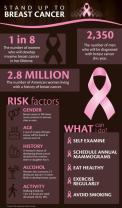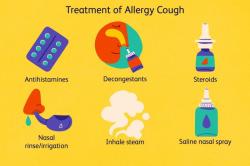Is a low carb diet safe for a senior citizen?
Before making any significant dietary changes, especially for seniors, it's crucial to consider individual health conditions and consult with a healthcare professional. However, in general, low-carb diets can be safe for seniors with certain considerations and potential risks:
Considerations:
Individual Health Status:
- Seniors should consider their overall health status, including any existing medical conditions such as diabetes, cardiovascular issues, or kidney problems. Consulting with a healthcare provider is essential to ensure that a low-carb diet aligns with their specific health needs.
Nutrient Intake:
- Low-carb diets may impact nutrient intake, as certain carbohydrates provide essential vitamins, minerals, and fiber. Seniors should ensure they are still getting a well-balanced diet that meets their nutritional requirements.
Weight Management:
- Low-carb diets are often chosen for weight management. Seniors looking to lose or maintain weight should do so under the guidance of a healthcare professional to avoid unintended health consequences.
Blood Sugar Control:
- For seniors with diabetes, a low-carb diet may help control blood sugar levels. However, careful monitoring and adjustment of medications may be necessary, and healthcare guidance is crucial.
Hydration:
- Some low-carb diets can lead to increased water loss initially. Seniors should ensure they stay adequately hydrated, especially since dehydration can be a concern in the elderly.
Potential Risks:
Nutrient Deficiency:
- Restricting certain food groups, including carbohydrates, may increase the risk of nutrient deficiencies. Seniors should incorporate a variety of nutrient-dense foods or consider supplements if needed.
Digestive Issues:
- A sudden increase in dietary fats and proteins, common in low-carb diets, may lead to digestive issues. Seniors should introduce dietary changes gradually and monitor their body's response.
Bone Health:
- Some low-carb diets may be low in calcium, which is essential for bone health. Seniors should ensure they get an adequate amount of calcium through other sources or supplements if necessary.
Individual Variability:
- Each person's response to a low-carb diet can vary. Some individuals may thrive on such diets, while others may experience adverse effects. Regular monitoring and adjustments are important.
In summary, a low-carb diet can be safe for seniors, but it should be approached with caution and individualized based on health status. Consulting with a healthcare professional or a registered dietitian is crucial to ensure that nutritional needs are met and potential risks are minimized.
Assessing the safety of a low-carb diet for senior citizens
Low-carb diets for senior citizens: Potential benefits and risks
Low-carbohydrate diets, which limit intake of carbohydrates to 20-50 grams per day, have been shown to have a number of potential health benefits for people of all ages. However, there are some potential risks associated with low-carb diets that are especially important to consider for senior citizens.
Potential benefits of low-carb diets for seniors
- Weight loss: Low-carb diets can be effective for weight loss, which is often beneficial for seniors managing obesity or related health conditions like diabetes, heart disease, and high blood pressure.
- Blood sugar control: For seniors with prediabetes or type 2 diabetes, low-carb diets can help lower blood sugar levels and improve insulin sensitivity.
- Improved cognitive function: Some studies suggest low-carb diets may benefit cognitive function and reduce the risk of dementia or Alzheimer's disease in seniors.
Potential risks of low-carb diets for seniors
- Nutrient deficiencies: Restricting carbohydrates can limit intake of fiber, vitamins, and minerals essential for seniors' health. Careful planning and potentially, supplementation might be necessary.
- Side effects: Transitioning to a low-carb diet can lead to initial side effects like fatigue, headaches, constipation, and bad breath.
- Risk of dehydration: Lower carbohydrate intake can decrease thirst, leading to dehydration, especially for older adults prone to it.
- Medication interactions: Certain medications for diabetes or other conditions might interact with a low-carb diet, requiring close monitoring by a healthcare professional.
Safety considerations for seniors on low-carb diets
- Gradual approach: Start with a moderate reduction in carbs and gradually decrease intake over time to minimize side effects.
- Hydration: Ensure adequate fluid intake to prevent dehydration.
- Nutrient-rich choices: Focus on low-carb vegetables, fruits, whole grains, lean protein, and healthy fats to maintain nutrient intake.
- Doctor's supervision: Consult your doctor before starting a low-carb diet, especially if you have any pre-existing health conditions or take medications.
Overall, low-carb diets can be safe and beneficial for some seniors, but careful planning, implementation, and close monitoring are crucial. Consulting a healthcare professional or registered dietitian is highly recommended to personalize a safe and effective low-carb approach for your specific needs and health status.
Remember, every individual is different, and what works for one person may not work for another. Always prioritize your health and well-being when making dietary changes, especially as a senior citizen.












